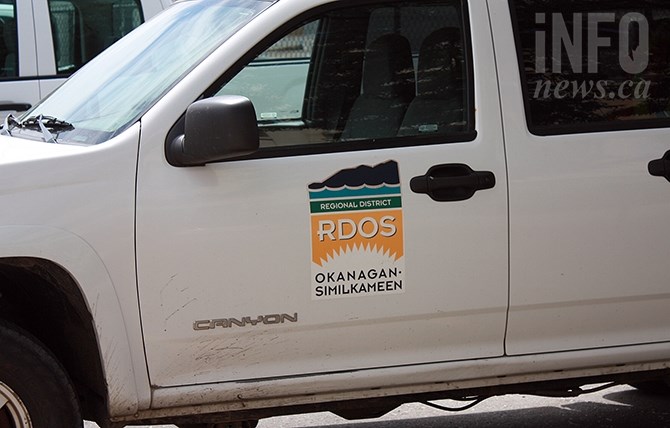Homelessness isn't just a Penticton issue, regional district told
Several directors with the Regional District of Okanagan-Similkameen (RDOS) made it clear last week that homelessness is not just a Penticton issue — it’s a growing concern affecting smaller towns and rural communities across the region.
This discussion followed a presentation on the success of Penticton’s Temporary Winter Shelter (TWS) this past winter, delivered by Penticton Chief Administrative Officer Anthony Haddad and Julie Czech, the city’s General Manager of Public Safety and Partnerships, during Thursday’s RDOS’s bi-weekly board meeting.
Penticton councillor and RDOS board member Isaac Gilbert proposed a motion requesting that the RDOS continue to provide 20 percent of the overall funding to support the TWS.
Located in Penticton’s industrial park on Warren Avenue, the shelter operated at full capacity from its opening in November. Although it was originally scheduled to close at the end of March, the provincial government — through BC Housing — extended funding to keep the shelter open until the end of May. A long-term agreement between BC Housing and the City of Penticton is reportedly in the works to keep the shelter open year-round.
However, after Gilbert introduced his motion, several rural directors voiced concern, emphasizing that further financial commitments require deeper discussion.
RDOS CAO Jim Zaffino advised that such a decision should be made during the 2025-26 budget process.
“That would start with the budget process,” said Zaffino. “There’s an impact statement — who pays and how much — so if the board is considering this, we can include it, and then the board can vote on it at that time.”
Director Matt Taylor said he was pleased the board wasn’t moving forward with the motion immediately, stating that there wasn’t a clear business case for the RDOS to commit 20 percent of the shelter’s funding.
“I’m probably one of the strongest proponents of this initiative,” said Taylor. “But I’d encourage staff to put together a business case to support what you’re asking for.”
Gilbert responded that the presentation by Haddad and Czech already offered a compelling case.
“We have people currently sheltering on Ministry of Transportation (MOT) land in Penticton, and we’re starting to see homelessness moving up the valley,” he said.
Gilbert argued that many users of the TWS and Penticton Regional Hospital come from outside the city, and it’s only fair for the RDOS to help fund the shelter.
“I think that 20 percent represents the RDOS being part of the solution,” he said. “The shelter benefits communities across the region.”
But Director Bob Coyne, who represents rural Princeton, disagreed.
“This could turn into a very heated discussion quickly,” he warned. “The changes we’ve seen in our community just in the last few weeks are drastic. Jumping in now to say we’re doing this or that is like getting the horse out of the barn too early. We need to hear what others have to say.”
Coyne also pointed out that people released from the Okanagan Correctional Centre in Oliver often end up in Princeton and become part of local homeless camps.
“We have to look at the big picture — not just one success story,” he said.
His son, Princeton Mayor Spencer Coyne, echoed the sentiment, stressing that homelessness is a regional issue, not just a Penticton problem.
He said he could not support funding for a facility that, while effective, is not yet approved to operate beyond May.
“I’m interested in a broader regional conversation,” he said. “Not just here at the board table, but involving our full teams. We have a growing issue in Princeton, with more than 30 people experiencing homelessness.”
He noted a back-and-forth movement of unhoused individuals between Penticton and Princeton, reinforcing the need for coordinated regional planning.
“This isn’t just a Penticton issue — it works both ways,” he said. “We need City of Penticton staff and regional staff to sit down together. Arguing this as a political point doesn’t help. It’s a real issue, and it needs real action.”
Summerland Mayor and RDOS Director Doug Holmes agreed, stating homelessness is increasing in his community as well.
“We need a regional approach,” said Holmes. “We’re seeing homelessness in Summerland at levels we’ve never seen before.”
He added that the appropriate place for solutions is among senior management teams across the region — not in response to a single motion during a board meeting.
Board Chair Mark Pendergraft thanked the directors for their contributions, acknowledging that the issue would certainly return for further discussion.
Gilbert’s motion was never voted on.
— This story was originally published by the Penticton Herald










